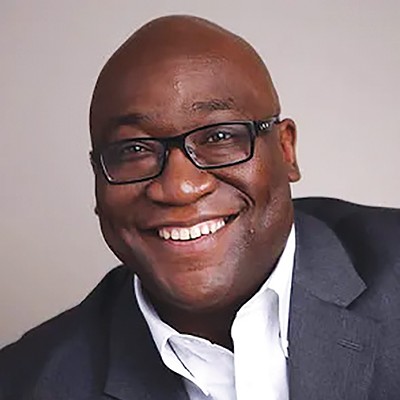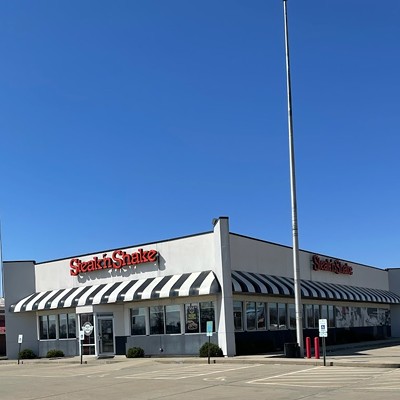StoneMor Partners, a Pennsylvania based cemetery company, has been quietly talking with Springfield Mayor Mike Houston and other top city officials about taking over management of Oak Ridge Cemetery.
Calling StoneMor “a good company,” Houston acknowledged Tuesday that he has spoken with no other firms about taking over cemetery operations. He has said that the city plans to issue a request for proposals aimed at soliciting bids to privatize Abraham Lincoln’s final resting place. The city council must approve any management deal.
StoneMor, which runs 277 cemeteries and 90 funeral homes in 28 states and Puerto Rico, is a publicly traded firm known for a relatively stable stock price and high dividends. Wall Street, however, is not entirely enthralled and considers the company’s debt less than investment grade.
Moody’s Investors Service last May attached a B3 rating to $175 million in bonds issued by StoneMor, meaning that analysts considered the company a high-risk, speculative investment. The issue, Moody’s said, was a high level of debt. The rating issued last spring was just one notch above junk-bond status.
The company that went public in 2004 has had both success and failures in taking over cemeteries in other states.
The company in 2010 struck a deal with the Archdiocese of Detroit to take over three Catholic cemeteries, but the archdiocese canceled the deal last year. StoneMor chief executive officer Lawrence Miller told analysts last week that the Detroit archdiocese canceled the deal because the church had raised sufficient money to relieve financial pressure on the cemeteries that had led to putting the cemeteries under StoneMor management.
More recently, the Archdiocese of Philadelphia in September agreed to a 60-year contract with StoneMor to take over 13 Catholic cemeteries, with StoneMor paying an upfront fee of $53 million and another $36 million over the life of the deal.
“For all intents and purposes, we looked at it (the Philadelphia deal) like it’s an acquisition,” Miller told analysts. “We are paying them a lot of money for the right to have 100 percent of the benefit and bear 100 percent of the risk. … Obviously, we did a pretty good job (in Detroit) because when we entered into the discussions with Philadelphia, part of their due diligence was to talk to the archbishop in Detroit to make sure we were the right people to deal with, and he gave us a very solid endorsement.”
The company’s critics point to the involvement of top StoneMor executives with The Loewen Group, a Canadian company that was once one of North America’s largest funeral companies. The company declared bankruptcy in 1999, two years before the Minnesota state auditor issued a critical report stating that cemeteries owned by the company had underfunded trust accounts established to keep two cemeteries solvent.
In one case, the Minnesota auditor determined, the company claimed that a burial vault had been sunk into the ground but no vault was found when investigators probed the ground with metal rods. After the state began its investigation, Loewen in 1997 acknowledged that it had underfunded a funeral trust fund by nearly $3.8 million in the space of three years. Loewen also installed a new management team and replaced executives who now work for StoneMor.
In the course of bankruptcy proceedings, Loewen said that it owed $2.1 billion, that it had mortgaged funeral homes to secure loans and that it had cut back on acquisitions to take care of existing operations. Between 1995 and 1998, the company had acquired 651 properties, including 348 cemeteries, which resulted in massive debt.
“In short, the liabilities are staggering,” Loewen officials wrote in a press release. “As of the commencement of insolvency proceedings, Loewen’s credit sources were fully tapped.”
Five StoneMor executives, including Miller, were top Loewen managers while the company tanked. All left the troubled firm in 1998 or 1999, after Minnesota regulators began their investigation while the company’s finances unraveled en route to bankruptcy. Neither Miller nor the other executives could be reached for comment on Tuesday night. Loewen emerged from bankruptcy in 2002 and is now known as the Alderwoods Group.
Some Springfield aldermen are concerned about handing Oak Ridge over to StoneMor, and critics showed up at Tuesday’s committee-of-the-whole council meeting to blast the proposal that first surfaced during an executive session at last week’s council meeting. The proposal didn’t become public for two days.
“I think the entire community has concerns about this as news trickled out, however it trickled out,” said Ward 3 Ald. Doris Turner.
No alderman, however, has publicly supported putting the cemetery under private management.
“We just learned about this last week,” said Ward 1 Ald. Frank Edwards. “No decision’s been made.”
Roger Griffith, an official with the American Federation of State, County and Municipal Employees that represents eight cemetery workers, told aldermen that private management by StoneMor is a bad idea.
“They don’t care about the city of Springfield, they don’t care about Oak Ridge, they only care about making money,” Griffith said.
Houston has said that the city is spending $400,000 a year to subsidize the cemetery, but cemetery executive director Michael Lelys said that just $220,000 of that has been spent with three months left in the fiscal year. However, Lelys said that he could not guarantee that there would be money left over. That depends on how many people die and whether they have already paid burial expenses.
Ward 7 Ald. Joe McMenamin said that the cemetery is a basic city service, no different that the fire department, police department or library.
“The fire department doesn’t break even, the police department doesn’t break even, the library doesn’t break even,” McMenamin said.
P.J. Staab, whose family runs Staab Funeral Home in Springfield, told the council that there is no money in running a cemetery.
“I’m not aware of any cemetery in the country that is a cash cow,” Staab said. “A management company will have to make a living off sales because they have Wall Street to answer to.”
At least one city has said no to StoneMor.
In Lansing, Mich., opponents of a 2011 proposal to put three city-owned cemeteries under StoneMor management succeeded in scotching the proposed deal that came about when the company was the sole bidder to take over the graveyards. According to the Lansing State Journal, the consultant who wrote the Michigan city’s request for proposals had once worked for StoneMor.
“We fought it and we stopped it,” said Loretta Stanaway, a leader of a Lansing group called Friends of Lansing’s Historic Cemeteries. “We did our research. … StoneMor was not financially strong.”
Stanaway said her group teamed with funeral home operators, florists and gravestone makers, all of whom feared losing business, to help convince the city to keep the cemeteries under public management. Among other things, Stanaway said that critics were concerned that StoneMor would prohibit grave markers that stood vertically as well as other memorial displays.
“Park ‘em and mark ‘em, mow and go,” Stanaway said. “They don’t want headstones, they don’t want anything that’s going to slow down a mower or a weed whacker. If you like a green lawn with plastic flowers, it’s right up your alley.”
Contact Bruce Rushton at [email protected].



















